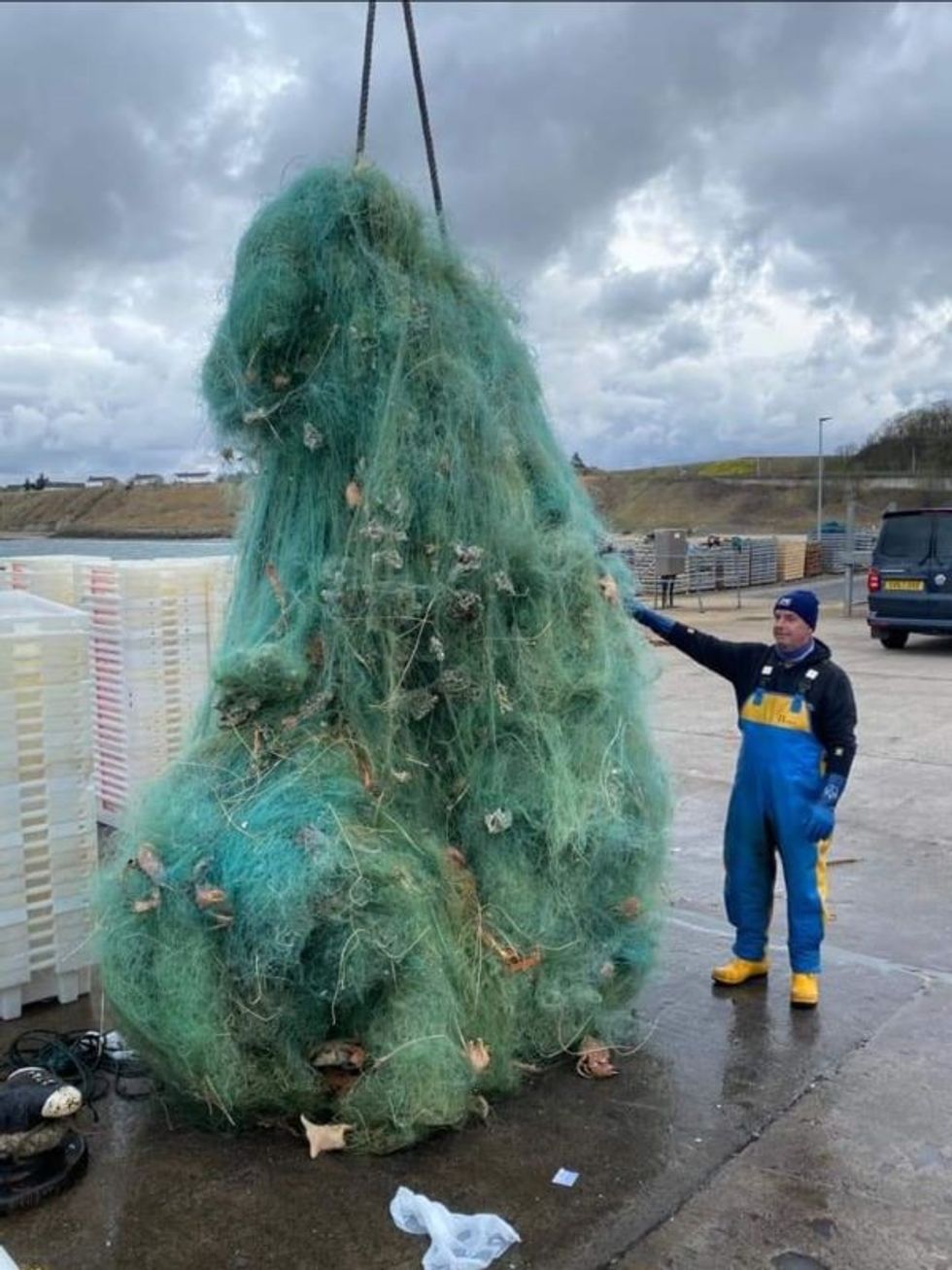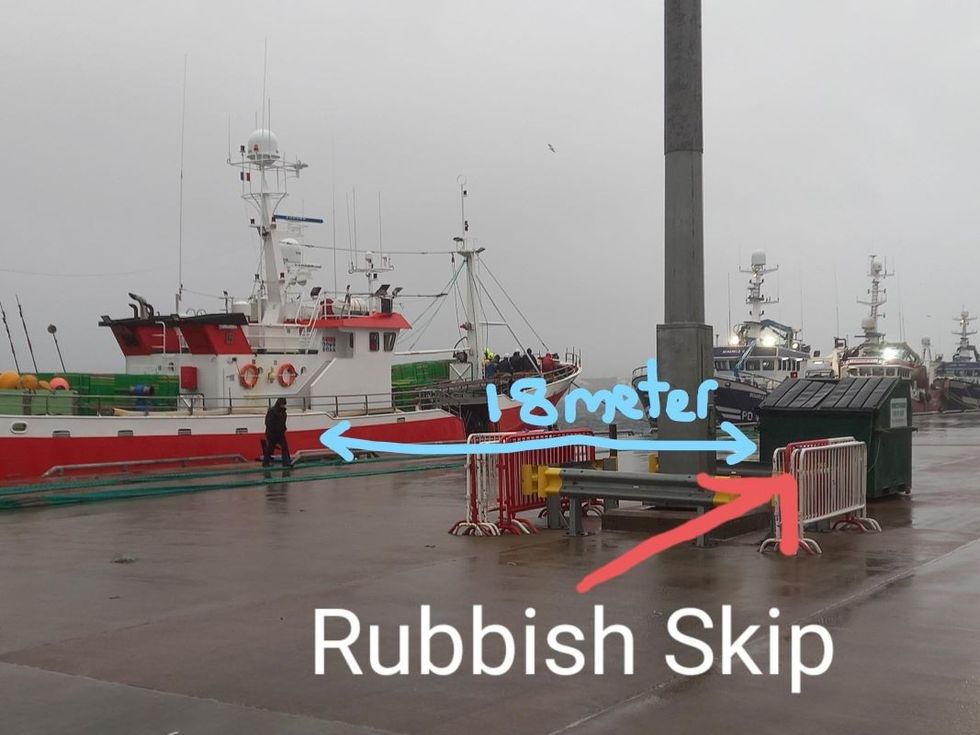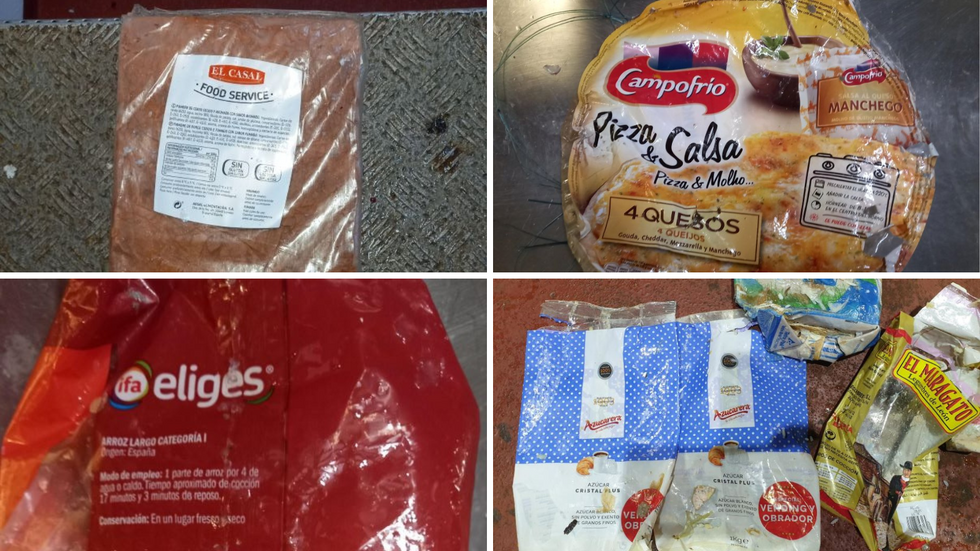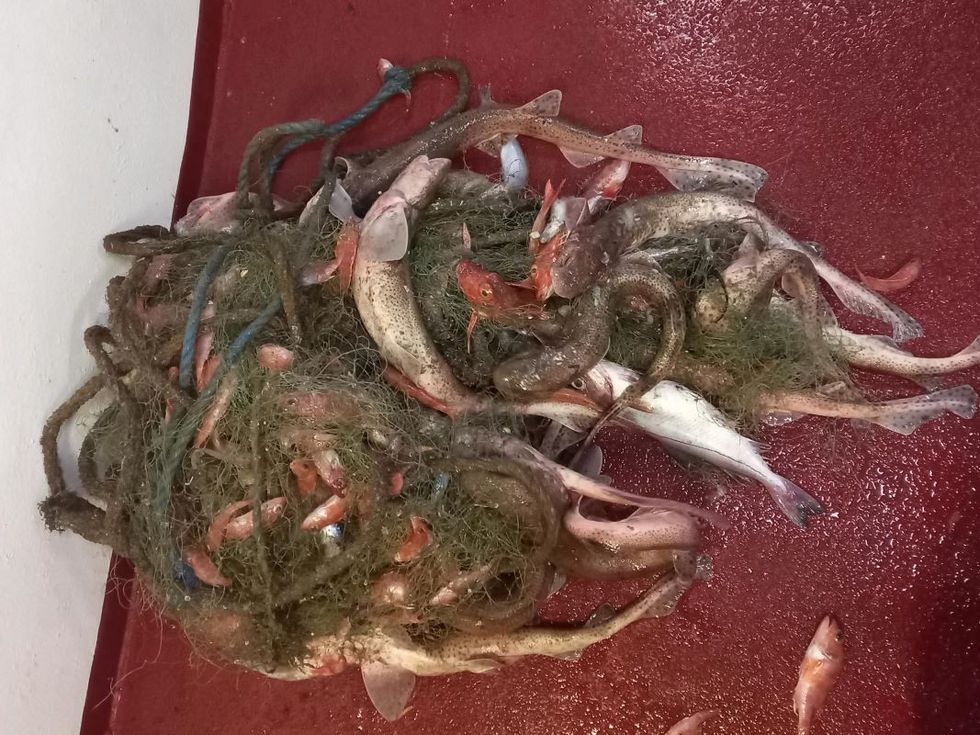'Not what they promised!' Fisherman hits out at Brexit on fifth anniversary 'Nothing has changed'
GBN
One EU boat returned to port with no waste despite nine-day fishing trip with 14 crew, says whistleblower
Don't Miss
Most Read
Trending on GB News
EU fishermen are dumping tonnes of plastic waste and discarded fishing nets into Britain’s waters while the authorities turn a blind eye, an exclusive investigation by Facts4EU and GB News has revealed.
British fishermen have sounded the alarm over the ‘systematic destruction of UK marine habitats’ by the EU fishing fleet, something they say is a daily occurrence.
Shocking evidence supplied by UK fisherman shows mountains of discarded fishing gear (gillnets and longlines which are not used by the UK) with trapped dead fish, seals and seabirds in them, as well as tonnes of plastic packaging written in French, Spanish or other EU languages.
Microplastics can kill fish if ingested making them ‘just as deadly to marine life as oil or chemicals’, says the International Maritime Organisation.
Discarded nets lead to ‘ghost fishing’, a highly damaging practice where marine life gets trapped in nets cluttering the ocean and slowly drowns.

British fisherman say they regularly retrieve huge EU nets like this one which entraps wildlife
Facts4EU
British fishing crews have complained of being forced to act as “unpaid bin men,” dragging up the EU fleets’ waste and bringing it to port.
“This is an environmental disaster in plain sight,” said one Shetland fisherman who provided damning photographic evidence of a French vessel unloading no rubbish after nine days at sea with 14 crew aboard.
“They’re dumping it all overboard. We know because we pull it up in our nets every week.”
On the specific example, the fisherman said: “The [boat name withheld] came into Lerwick harbour to land its catch into the back of a Spanish lorry.
“The vessel had been at sea for nine full days, with no less than 14 crew onboard. Despite being at sea for this length of time and berthing under 20 metres from a rubbish skip which is free to use, she discharged not one single rubbish bag into the skip.
"Judging by how much rubbish our own vessel creates with just 5 of a crew, they will have generated around 5-7 cubic meters of domestic waste for this period of time at sea, not including any discarded fishing equipment, which has presumably all been dumped overboard.”

Despite berthing 18 meters from a skip, this EU vessel did not unload any rubbish after nine day's fishing with 14 crew onboard
Facts4EU

Just some examples of EU rubbish British fishermen retrieve from UK waters every day
Facts4EU
According to maritime law, fishing vessels are supposed to keep a rubbish log which is checked by authorities after coming to port.
However, despite repeated Freedom of Information requests over many years, the authorities have failed to provide any evidence of these logs being checked or fines being administered to offenders.
When questioned by Scottish fishermen, the Scottish Government Marine Directorate told them that harbour patrols had been undertaken and that “garbage and fishing gear is being disposed of appropriately”.
The fishermen then asked the Marine Directorate in writing, using FOI requests, to provide evidence of the garbage and fishing gear being disposed of.
They responded saying they did not hold the information, and it would be too expensive to extract it.
“While we recognise that there may be some public interest in information about the quantities of fishing gear observed as being disposed by our officers, clearly we cannot provide information which we do not hold,” the Directorate said.
LATEST FROM MEMBERSHIP:

Scottish Government Marine Directorate were unable to provide any evidence of EU vessels' rubbish logs being checked or fines administered for offenders
Facts4EU
Fishermen followed up with FoI requests asking for the tonnage of domestic rubbish being discarded and the number of vessels discarding waste at ports, but both requests were refused on the same grounds, that the directorate does not hold the information, and it would be too cumbersome to find it.
To avoid the same response, Facts4EU asked the Marine Directorate for whatever they had readily available in respect of marine litter emanating from commercial fishing operations and any quantifiable data they held.
However, the Scottish Government Marine Directorate insisted on specific questions being asked, so Facts4EU obliged and asked:
- Are any records kept of marine litter brought back to port by commercial (sea) fishing vessels?
- Are Rubbish Logs ever inspected and anything recorded?
- Any broad statement you would like to make about marine litter in respect of fishing vessels?
A Scottish Government spokesperson responded: “The Scottish Government is clear that marine litter is unacceptable, risking the health of our marine environment on which we rely.
“Scotland was the first part of the UK to implement a ban on some of the most problematic single-use plastic products and we continue to work with our partners to reduce many sources of marine plastic pollution as possible and also to support the removal of rubbish from our seas and coastline.
“The Scottish Government’s Marine Litter Strategy and National Litter and Fly-tipping Strategy targets key sources of litter, including improving the collection and recycling opportunities for end-of-life fishing gear.
“We also continue to fund KIMO’s Fishing for Litter scheme to help fishers remove rubbish from our seas and encourage better waste management at sea.” [See below for information about the charitable ‘Fishing for Litter’ scheme.]
No data surrounding litter collection, rubbish log verification or litter patrols was provided.
Requests to the Maritime and Coastguard Agency (MCA) were met with the same response.
Next week, Facts4EU and GB News will reveal more of the shocking crimes EU fishing vessels are committing against British seals, seabirds and fish.







